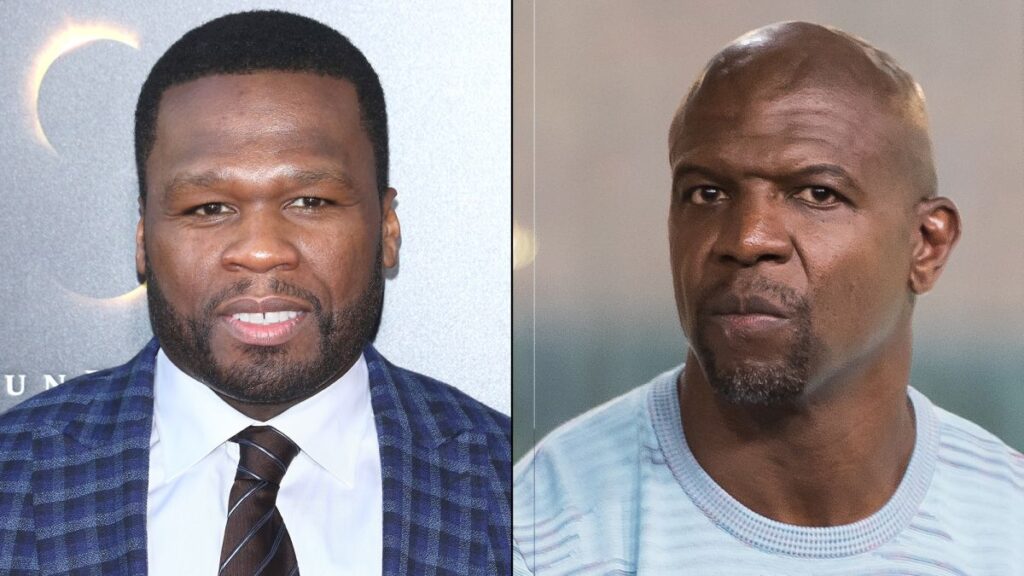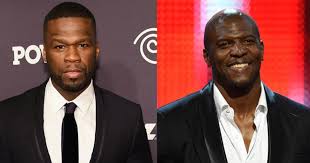In 2016, while at a party with my wife, I was sexually assaulted by a successful Hollywood Asian. He looked me in my eyes and was sticking his tongue out overtly sexually. He took his right hand and grabbed my genitals. I jumped out of there and said, “Hey, what are you doing?” The way he looked at me was like he was saying, “No one’s ever going to believe you.” Men everywhere wanted to know why a guy like him hadn’t fought back. 50 Cent mocked Terry, questioning why he didn’t defend himself. Terry Crews was like the Hulk—this guy’s huge. I just couldn’t get how he froze like he was afraid. “God gave you muscles so you could say no; ain’t nobody just gonna grab my nuts without getting punched.” And why didn’t he fight back?
Six years before his assault, Terry’s family left him when his wife discovered a secret he’d been hiding for 10 years. “My wife, you know, over the years, she was always suspicious. I started to hammer him with questions. All of a sudden, he started flashing—’Ten years ago I did this, thirteen years ago I did this.’ And when I told my wife, I heard this gasp, and she said, ‘I remember hanging up the phone. I said, ‘Don’t come home.’ And then there I was, by myself. I remember in this hotel room—there it is; it’s over.”
Terry Crews, known for his impressive physique, has come under fire from 50 Cent for not fighting back during an attack. Despite being 6’3″ and 240 pounds of muscle, Terry froze instead of defending himself, which shocked many. Adding to the drama, it was revealed that Terry’s wife and kids left him after a long-held secret came out. Now, Terry is pushing back against 50 Cent’s criticism, questioning whether 50 Cent’s own claims about manliness hold any weight given his personal isolation.
Looking back on my childhood, I remember seeing my father’s violent outbursts toward my mother. As a four-year-old, I felt helpless amid the shouting and breaking glass, craving some semblance of peace. Terry had vowed never to repeat his father’s mistakes, but as he grew stronger, he seemed to use his physical power to dominate those around him. His reaction to the recent attack revealed a different side, raising questions about what true strength and manliness really mean.

Terry looked back on his mistakes and said, “I used to think I could get away with anything because I was taking care of my family financially. I’d cheat and just blame others, telling myself it was okay because I was successful—rich, famous, popular. I thought, ‘What does she have to complain about? Life’s great.’ But I realized that being a good provider doesn’t excuse emotional neglect, and thinking success could buy me a pass was wrong. A voice inside me asked, ‘Maybe it’s me.’ I was showing a facade, not the real Terry Crews. My wife wasn’t married to me, but to a picture of me.”
Terry knew he needed to change. “I didn’t go to rehab just to get my wife back. I went because I needed to be a better person.” He proved his commitment by seeing a counselor. In time, Rebecca chose to come back. “I had to earn it. We rebuilt our marriage from scratch. I knew how close I came to losing everything.” When faced with an assault, Terry had to choose between his old violent reactions and showing he had really changed. “My first instinct was to react violently, but I stopped myself.”
When asked why he didn’t use his opportunities to contribute to his community as a Black man in America, Terry thought about the young Black men who end up in prison or worse due to violence. “Sometimes you’re shaped by your environment, but you have to make a choice and say, ‘I don’t want to be that kind of man.'”
Terry also opened up about advocating for sexual assault survivors before the U.S. Senate. “When I shared my story, people kept brushing it off as ‘horseplay.’ But what one person calls horseplay, another calls humiliation. What kind of example would I set for my kids if I told them to speak up if someone touches them inappropriately, but then didn’t do it myself?”
50 Cent criticized Terry for not being a real man, but he himself has been missing from his own family’s life. He’s been estranged from his eldest son for over a decade. Reflecting on this, he says, “I don’t have him in my life; we don’t have a relationship. I haven’t done any of the things I promised—taking him to basketball games or on vacation. For me, it’s never been about the money; it’s about the relationship. I used to wonder, how long can you keep loving something that doesn’t love you back?”

In contrast, Terry showed what real manhood looks like by choosing to extend love rather than resort to conflict. “I admire 50 Cent and listen to his music when I work out. By using his voice instead of violence, Terry demonstrated true strength. Real strength isn’t about physical power or aggression. It’s about standing up for those who are weak, admitting when you have a problem, and asking for help. True masculinity isn’t about hiding vulnerability or clinging to pride—it’s about embracing the full, beautiful spectrum of being a man.”



